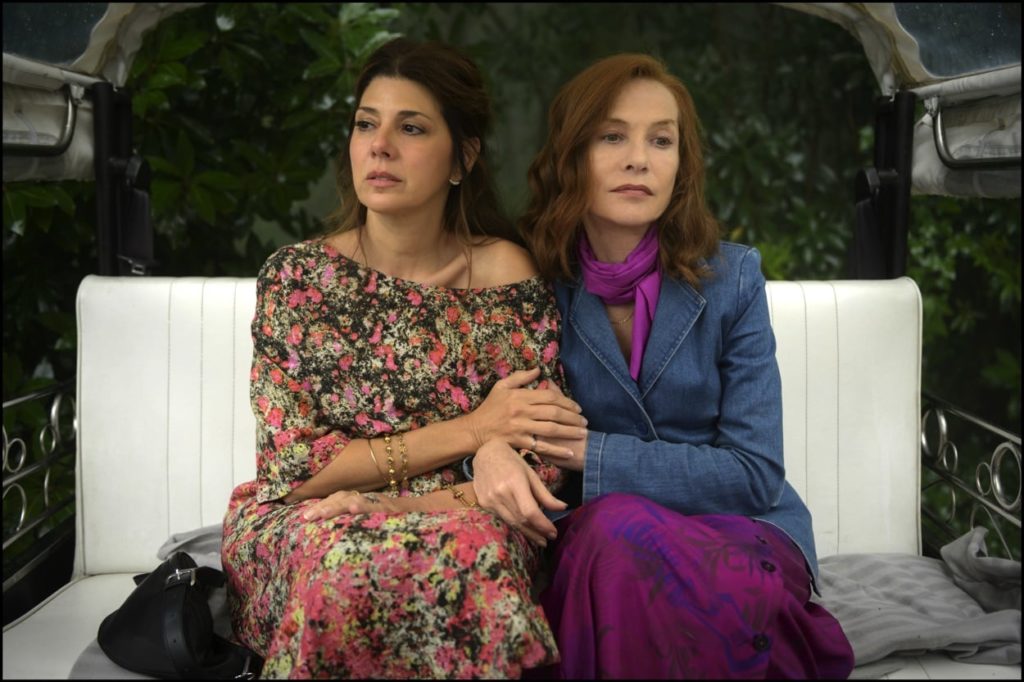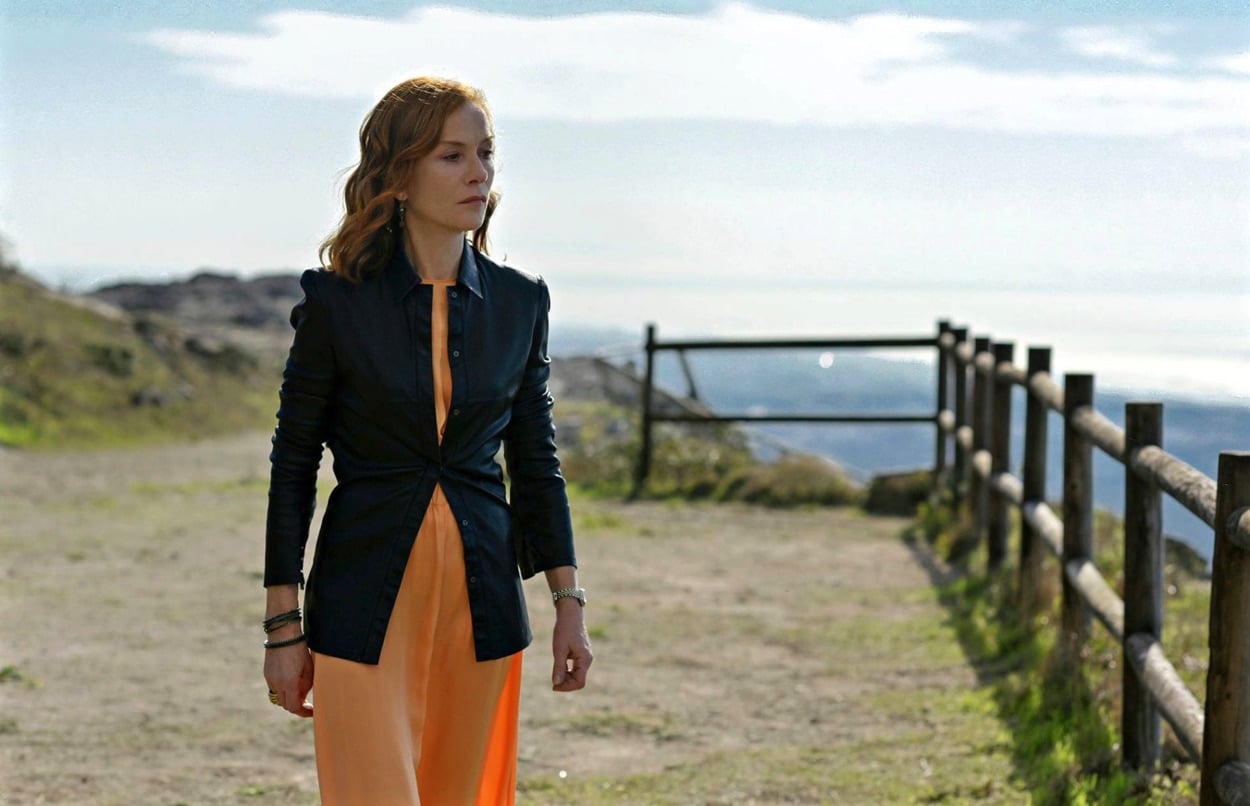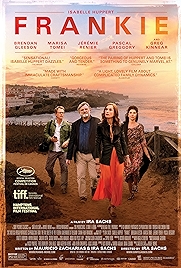Having made films with more than a hint of the French about them – character driven, focused on metropolitan angst, loose, semi-improvised acting style, unafraid to let nothing happen – Ira Sachs finally gets almost all of the way there with Frankie, a drama set in Portugal but with plenty of French speakers in his cast.
Patrice Chéreau’s 1998 drama Those Who Love Me Can Take the Train (Ceux Qui M’aiment Prendront le Train) is a close analogue, though here the central figure around which everything spins is still alive. She’s played by Isabelle Huppert as Françoise (aka Frankie), a famous actress who has called all her family together in Sintra, Portugal, for some yet-to-be-explained reason, though it isn’t hard to guess what it might be.
Pascal Greggory plays Frankie’s first husband and Sachs uses him more as a lucky charm – he was in Those Who Love Me Can Take the Train – than as an important character. As Michel, now a happily out gay man, he’s part of Frankie’s extended and blended family, including her second husband Jimmy (Brendan Gleeson), her son Paul (Jérémie Renier), Jimmy’s daughter Sylvia (Vinette Robinson), Sylvia’s husband Ian (Ariyon Bakare) and their daughter Maya (Sennia Nanua).
Floating around the edges is Frankie’s old friend Ilene (Marisa Tomei) and her on/off boyfriend Gary (Greg Kinnear) both of whom, we are told more often than seems necessary, are in Europe working on the latest Star Wars movie.
Relationships in various states of decay is Sachs’s abiding concern and they’re what gives this drama what little tension it has… eventually. Though everything constellates around Frankie, at the edges Paul is lovelorn, Sylvia and Ian’s marriage is in tatters, Gary is like a bull at a gate with the unconvinced Ilene, and young Maya is off at the beach, where a lusty local is giving her her first taste of the thing that’s causing most everyone else such grief. Frankie and Jimmy, meanwhile, are blissfully happy. But even there Sachs (and regular co-writer Mauricio Zacharias) does eventually raise a little question mark.

Having been a fan of Sachs’s films since I first saw 2005’s Forty Shades of Blue, I wanted Frankie to work but it didn’t, or not often enough. Too many scenes felt awkward, as if improvisation as a guiding principle had just been taken too far, when what was really needed was for someone to shout “cut”, offer some notes to struggling actors and then go again. Quite why all the characters so often needed to shout was a mystery too.
That said, there are some fabulous moments that do just work – Huppert and Gleeson just sitting down at a piano together, saying barely a word, the long-delayed moment when Tomei’s Ilene and Renier’s Paul finally meet, for what the matchmaking Frankie is hoping will be the beginning of a love affair.
These moments come mostly towards the end. While Sachs is simultaneously wrapping up and suggesting that life goes on, the drama suddenly takes wing, almost as if on its own, in a couple of scenes notable for what’s not said rather than what is.
Huppert glides through the whole thing, partly because her character, Frankie, is one of those blithe spirits, partly because Huppert tends to glide, and partly because there really isn’t a whole lot of stuff going on, apart from the BIG THING, which is barely mentioned, and I won’t mention either.
A failure, but an interesting failure. Watch it to see actors you wouldn’t expect to see together – Kinnear and Huppert, for example – and to see sun-drenched Sintra, a town that looks busy and buzzy with tourists, with people enjoying themselves. There isn’t much of that going on with Frankie and her brood.
Frankie – Watch it/buy it at Amazon
I am an Amazon affiliate
© Steve Morrissey 2021

